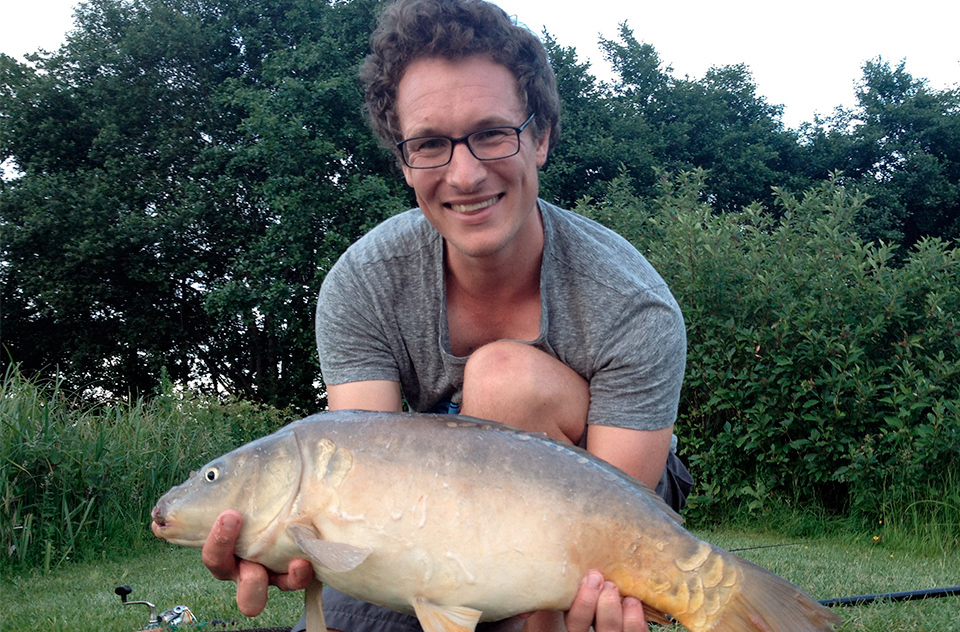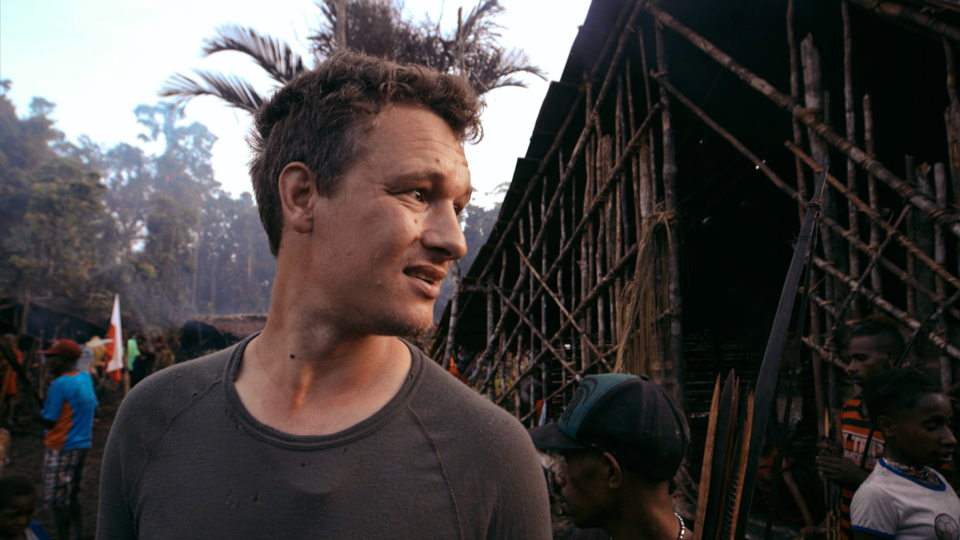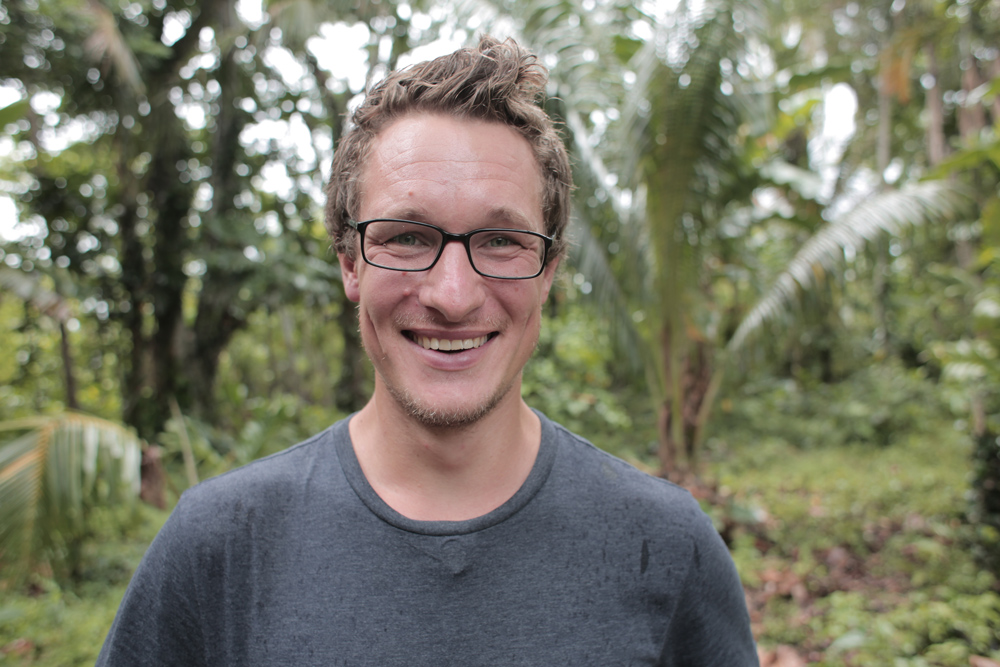- Home |
- Search Results |
- How fishing helped me overcome my post-traumatic stress disorder
How fishing helped me overcome my post-traumatic stress disorder
BBC presenter Will Millard, author of The Old Man and the Sand Eel, writes about how 'angling' brought him back from mental health struggles after a series of expeditions that nearly cost him his life.
When the celebrated poet Ted Hughes wrote of float-fishing in 1967 he commented that ‘your whole being rests lightly on the float’. Superficially, what Mr Hughes is implying, is that to be a decent float-fisher you must try to achieve a condition of such intense concentration that there is nothing more in life than you and that float bobbing in front of you; when a pulse, a flick, a tremble on that tip will register in your body as if an earthquake has gone off under your bait box; but he is also tapping into something far deeper: the idea that there is so much more to fishing than simply catching fish.

Many of us turn to water to solve our problems, and for those of us who fish it can be our chosen form of therapy too. As Mr Hughes hints, fishing is a deeply meditative and mindful pastime that can momentarily remove the angler from the very real problems of the very real world. For people suffering with mental health issues these escapist principles can also offer a vital respite. A day’s fishing can quite literally mean the difference between being sad or happy, unwell or healthy, getting up or staying in bed. The act of drawing back those curtains early in the morning and heading into fresh air in search of a fish carries an enormous sense of personal well-being with it. Being by water is simply good for the soul, and watching that float, or focusing on a rod tip, feeling for a trembling line, or staring at a floating fly, erodes stress at a far greater rate than any trip to the gym, pub or psychiatrists couch ever will. Time both slows down and speeds up. You can spot micro-details like how a cloud of nymphs expands and contracts on a river’s surface, or how a king fisher dramatically throws its neck forward as it strikes the water, but whilst observing the translucence on the wing of some damsel, or watching a toad crawl in animated slow-motion, you suddenly realise it is getting dark and that you didn’t even touch your lunchtime sandwiches.
Last year I was diagnosed with Post Traumatic Stress Disorder. It was something I felt very uncomfortable opening up about initially, but it took writing my fishing book The Old Man and The Sand Eel to properly reflect on my life and the deeper reasons why angling has held me in its grasp for 30 of the 34 years I have been alive.


I helped a broken corpse onto a truck after a traffic accident, helplessly watched a child succumb to Typhoid, then, a year later, a team member of mine was violently assaulted.
During the day I coped by becoming increasingly numb and detached from the world around me, but at night my traumatic memories were ready and waiting. Like monsters under my bed, they would pounce the second I closed my eyes. Post Traumatic Stress Disorder or PTSD is a curious mental illness. My traumas were buried somewhere deep within the frontal lobe of my brain, the part responsible for reasoned thought, stress management, and our fight-or-flight mechanism. We don’t really know why it effects some people and not others, and the symptoms can vary from the fairly mild: irritability, insomnia, occasional short attention span, right through to the extremely serious: lucid flashbacks, suicidal thoughts, and habitual destructive behavior. The treatment itself isn’t exactly specific either. There are some decent medication options, and I personally found spoken word therapy and Cognitive Behaviour Therapy (CBT) to be very helpful, but for many, simply getting outside and reengaging the natural world with feet and fingers helps tackle trauma in a really meaningful way too.
When I fish, I found the intense focus of the act allowed me the space to safely unlock the entirety of a traumatic memory, and not just wallow in the traumatic act itself. For example, in 2012, when I was out of my raft, trapped in ungraded white water and about to be smashed into oblivion in a rock-filled rapid, all I could recall for years was the horrific feeling of my fingernails scraping along the rocky walls of the gorge, searching for a hand grip to arrest my slide. Fishing allowed me to recall how I had gotten into that mess in the first place, my decision to enter that steep sided gorge as big tropical rain clouds approached, and crucially the memory of how I had eventually freed myself, how I had found that fault in that stone and pulled myself, and my expedition partner, to safety. It sounds obvious when I write it out, but for me the physical weight off my chest and shoulders was immense in those moments, and I was always able to return to my safe focus on the river if it didn’t quite work out that day.

When I fish, I found the intense focus of the act allowed me the space to safely unlock the entirety of a traumatic memory, and not just wallow in the traumatic act itself.

The benefits of fresh air and exercise to our mental well-being are well documented, but there is still virtually nothing written about the healing power of angling. I learnt I was actually far from alone in the weeks after my book was published. Many people have since approached me to talk about their own problems and experiences. I met soldiers serving in Afghanistan and Iraq who escaped the frontlines through their fishing, people with terminal illnesses who have found relief from simply watching water, and other sufferers, with a range of mental health issues, that always took to their rods, as well as their medication, first.
It would be a falsehood to say that I simply fished through all my problems, or that my mental health is fixed entirely, but for me my fishing has been deeply and holistically restorative. For that I’ll be forever grateful to the man who brought me to my rods, the water, and most of all, the fish.
Will Millard